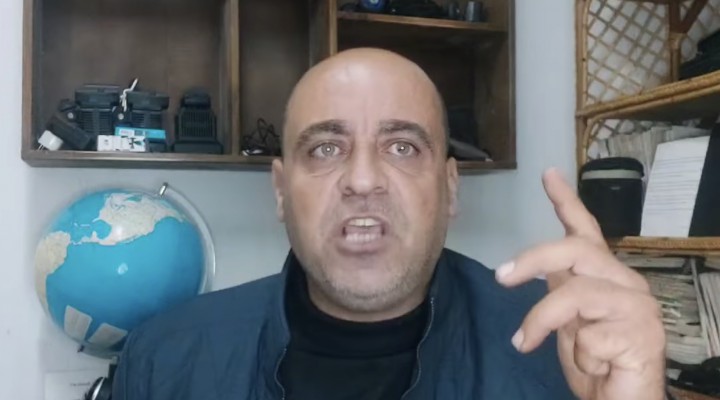Will political accountability be established in the light of Banat’s murder?

The Palestinian Authority’s stances in the aftermath of Nizar Banat’s extrajudicial killing at the hands of its own security services have ushered in no promise of accountability. While the people were protesting against the murder and the PA’s ruthless authoritarianism, the upper echelons in Ramallah were busy silencing its critics by violent means.
On Monday, PA security spokesman Talal Dweikat announced that 14 members of the security services are to be charged for their participation in Banat’s murder. Speaking to the BBC, former PA minister and Deputy Secretary General of Fatah’s Central Committee Sabri Saidam described the murder as “a mistake” and downplayed the protests. “They are not just about the right to speak openly,” Saidam claimed. “They are politically motivated, and there are some outsiders playing along the lines of sabotaging the work of the Palestinian Authority.”
Wasn’t there a very obvious political motivation for Banat’s murder, though? And does the forthcoming legal process for the 14 officers involved in Banat’s murder offer up the potential for political accountability, when security coordination with the Israel occupation forces, as PA leader Mahmoud Abbas has said, is “sacred”? While Banat’s name might not have elicited many sparks of recognition prior to his murder, the fact that he was under surveillance by the PA’s security services speaks volumes about a coordinated programme – in collaboration with Israel – to stifle a voice that could have altered the course of Palestinian politics; if Abbas had not cancelled the elections, of course.
Banat’s family have expressed doubts that any investigations conducted by the PA will achieve a semblance of justice. The killing itself – a criminal act – may be investigated within a legal framework. However, investigating the motives and the presumption that orders may have been given from above to silence any dissent gaining traction among the Palestinian people will be a momentous task, particularly when there is no structure that can hold the PA politically accountable for Banat’s murder (or anything else, for that matter).
The forthcoming investigation is overdue, even when we consider that the PA downplayed the murder in the first place, while scrambling to contain a wave of Palestinian dissent that spoke more of unity and resistance than the PA’s rhetoric has ever tried to conjure. However, the process of shifting attention — and blame — away from the PA’s authoritarian violence is a bonus for Ramallah, if it can carry it off.
Banat’s murder was a culmination of various stages of repression which cannot be blamed on the PA security services alone. “It’s a high price that Nizar paid,” Palestinian activist Fadi Quran was quoted as saying in a recent feature article. “More of us will have to pay it in the future. We are prepared for that.”
![Why did the PA kill Nizar Banat? - Cartoon [Sabaaneh/MiddleEastMonitor]](https://i2.wp.com/www.middleeastmonitor.com/wp-content/uploads/2021/06/Cartoon-2.jpg?resize=933%2C653&quality=85&strip=all&zoom=1&ssl=1)
Why did the PA kill Nizar Banat? – Cartoon [Sabaaneh/MiddleEastMonitor]
The expectation of violence – even murder – at the hands of leaders who are supposed to be concerned with their people’s welfare is a chilling prospect. It also means that the PA has normalised its political violence against its own people. For such a process to occur, there is a degree of certainty on the part of the leadership that its orders to commit violent crimes against ordinary Palestinians will be carried out without question, and kept well away from any investigations.
Nizar Banat’s killing was politically motivated; there is no doubt about that, but how far up the ladder of authority will the investigation go? And will the judicial process move beyond the 14 potential scapegoats in order to hold to account the politicians who gave them their orders?
 TheAltWorld
TheAltWorld 
0 thoughts on “Will political accountability be established in the light of Banat’s murder?”